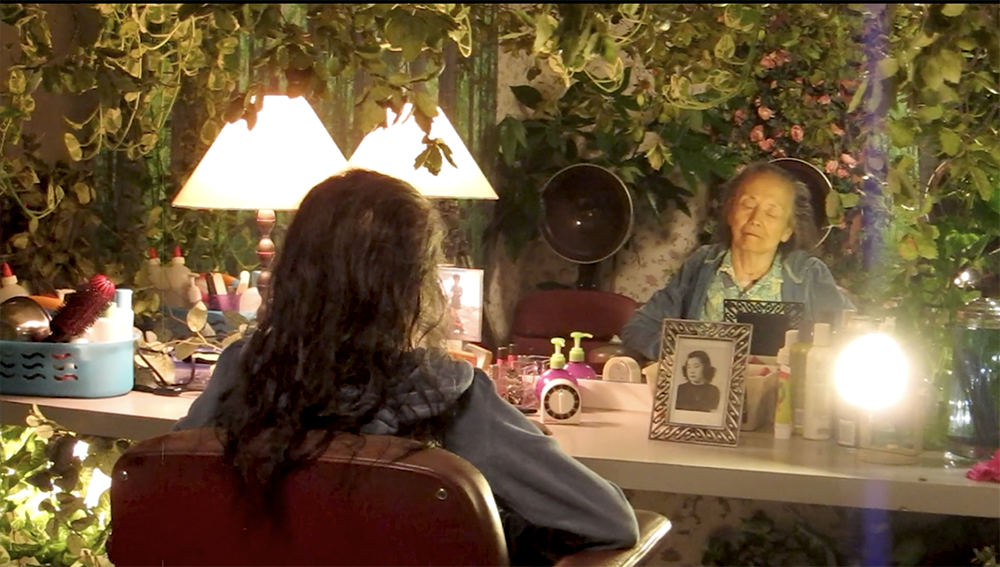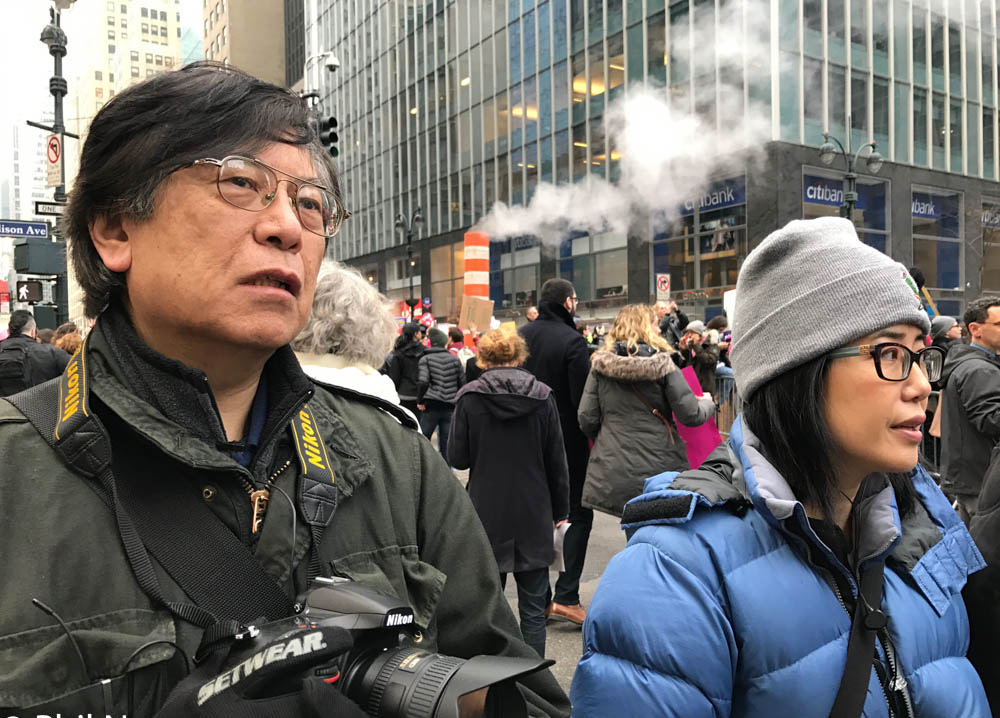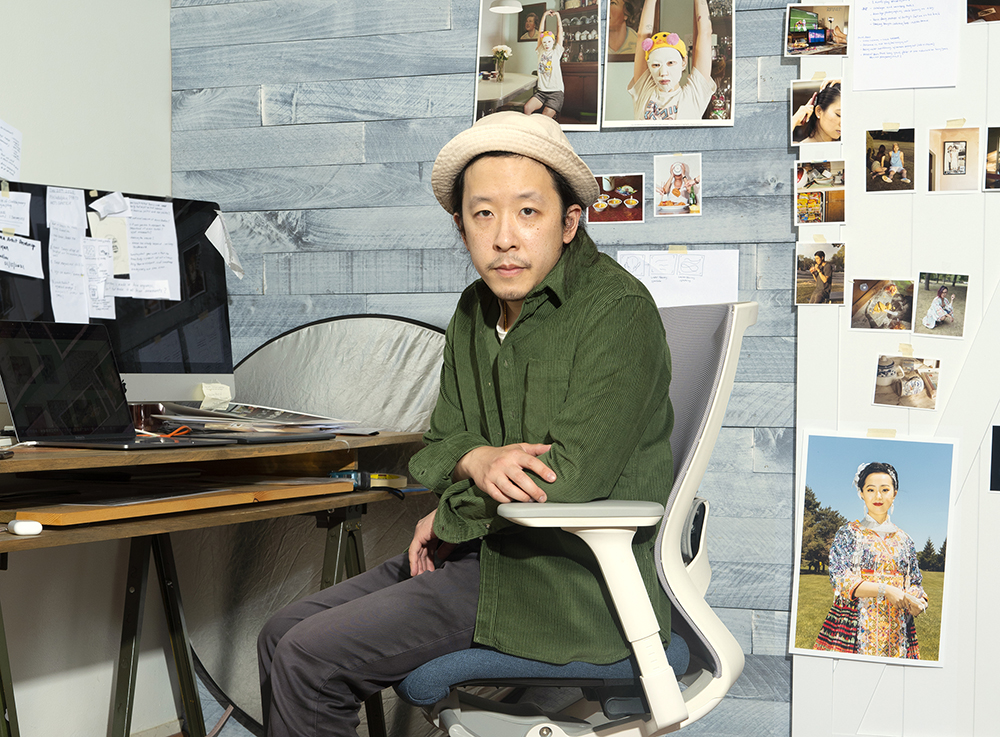
CAAMFest Brings Film, Music, Food and Conversation to Bay Area May 11-21
By Grace Hwang Lynch
The annual Asian American festival is back!
What does a bawdy Hollywood film about four friends on a NSFW romp through Asia have in common with a conversation about art and community at a museum? While vastly different in style, they both ask us to interrogate the importance of storytelling and connection in bringing joy in our lives. They are both part of 11 days of film, music, food and cultural dialogue known as CAAMFest. This year’s program, from May 11-21 in San Francisco and Oakland, is back to its pre-pandemic size, with a few twists.
The San Francisco-based Center for Asian American Media (CAAM), which produces CAAMFest, is eschewing virtual events and inviting the community back into theaters, museums, and restaurants not only to watch movies, but to experience all the Bay Area’s creative community has to offer.
“These last few years have deeply altered us and we are only starting to journey towards each other again,” says Festival and Exhibitions Director Thúy Trần. “CAAMFest 2023 is a call to gather so that we may witness each other’s transformations, restore our bonds, and bask in our joys.”
Joys, as defined by CAAMFest’s organizers, include seeing Asian Americans represented multi-dimensionally on-screen—as immigrants and family members, and also as activists, sexual creatures, and people in complicated relationships. Expanding on the festival’s 41-year legacy as a showcase for Asian American film in the Bay Area, this year’s programs also offer participants the chance to savor tasting menus prepared by local and regional chefs, dance to live music, or get a cookbook signed by authors who have chronicled traditional or updated recipes from the diaspora.
Here are some highlights of CAAMFest 2023 programs:
Opening Night Gala
Following the highly anticipated opening night film "Joy Ride," which follows four Asian American friends on a wild, once-in-a lifetime international adventure, the real-life revelry will continue at the Asian Art Museum for the annual CAAMFest Opening Night Gala, beginning at 9:30 p.m. on May 11. Food and beverages will include succulent treats from Hết Sẩy and Tacos Sincero, vegan eats by Chef Reina, and much more. Entertainment will include tarot and henna art, dancing, and special appearances by San Francisco’s finest drag artists.
Rea Tajiri Retrospective Spotlight
Documentary filmmaking is sometimes thought of as a record of history. But can documentaries also be a way to experience the past (lived or imagined) or different states of reality? Veteran filmmaker Rea Tajiri immerses the viewer in these realities in a style that is less like a textbook and more like a poem or a lyrical essay made of moving images. The daughter of a photojournalist and a graduate of California Institute of the Arts, Tajiri makes movies as a form of conceptual art; her work often centers around the Japanese American experience and questions about what is remembered–or what people try to forget.

A still from "Wisdom Gone Wild." Rose Sleeping at Mirror in a Beauty Shop. Image courtesy Rea Tajiri.
Tajiri’s latest documentary, "Wisdom Gone Wild," which screens May 14 at the Castro Theatre, chronicles her mother Rose Noda Tajiri’s journey with dementia and the changes it brings to their family dynamics. She started recording to share her mother’s journey with relatives. “I would take a few clips, and I would take more clips,” recalls Tajiri. “And pretty soon I was getting into it.”
Nearly 20 years later, those snippets have come together in the form of "Wisdom Gone Wild." While much more personal than her other projects, this documentary feature touches on many of the recurring themes in Tajiri’s work: the incarceration of Japanese Americans during World War II, memories (or the lack of) from this period, and her ongoing journey to unearth personal and collective emotional legacies. Tajiri, a professor of film at Temple University, is one of the first Asian American women to produce a feature narrative film, and her genre-bending style has inspired many other filmmakers.
“Our Spotlight criteria recognizes an Asian American filmmaker who has both a substantial body of past work as well as a new film that enhances and furthers that legacy,” says CAAM Executive Director Stephen Gong. “Rea’s 'Wisdom Gone Wild' certainly does that, and we’re delighted to revisit her groundbreaking past work, "History and Memory: For Akiko and Takeshige" and "Strawberry Fields.”
Equal parts coming-of-age movie, historical drama, and ghost story, the narrative feature "Strawberry Fields," plays on May 13 at the Roxie Theater. The 1998 release stars a young Suzy Nakamura as a rebellious teenager searching for answers to family secrets, guided only by an old photo and the spirit of her dead younger sister.
On May 20, "History and Memory: For Akiko and Takashige" will screen at the SFMOMA Phyllis Watts Theater. This groundbreaking 1991 documentary combines recorded history and recreated memories around the Japanese American experience of incarceration during World War II.
"Photographic Justice: The Corky Lee Story"

Corky and Jennifer at the Women's March 2017. Photo by Phil Nee.
How does one create a chronicle of the self-proclaimed “undisputed unofficial Asian American photographer laureate”? For filmmaker Jennifer Takaki, it was a 19-year process of documenting the life and work of New York City photographer Corky Lee, who passed away of COVID in 2021.
The result is the feature documentary "Photographic Justice: The Corky Lee Story." The Chinese American photographer’s pioneering work captured the richness and complexity of the Asian American Pacific Islander (AAPI) experience for half a century. Lee’s images of daily life, cultural celebrations, and social justice movements reveal a rare record of a community often overlooked by mainstream media – and demonstrate the power of the camera as a tool for advocacy and social change.
Filmmaker Jennifer Takaki and Producer Linda Woo are expected to take part in a discussion after the screening on May 14 at the Great Star Theater.
This film is preceded by the short, Tracing History by Jalena Keane-Lee; about the
filmmaker and her mother’s journey of self-discovery and reclamation as they tour the railroad sites built by their ancestors six generations ago.
Jarod Lew in Conversation With Helen Zia

Jarod Lew, self-portrait.
Another peek into the everyday lives of Asian Americans, Jarod Lew’s portrait series "Please Take Off Your Shoes" will be on view at SFMOMA as part of the photography exhibition "Kinship: Photography and Connection" beginning May 20. On opening day, Lew, who photographs the Asian American experience in hopes to visualize communities who would be otherwise overlooked or made invisible, will be joined by award-winning author and journalist Helen Zia.
Lew was inspired by the revelation that his mother had been engaged to Detroit resident Vincent Chin, who was murdered by two white auto workers on the night of his bachelor party in 1982. Zia’s reporting around Chin’s death galvanized Asian American activism around anti-hate crime legislation. Zia has remained a voice to mark the event as a defining moment for collective action against anti-Asian hate. This free event takes place at the SFMOMA Phyllis Watts Theater.
"I Can't Keep Quiet"
Main image, MILCK - courtesy of CAAMFest
Eurie Chung’s documentary, "I Can’t Keep Quiet," provides an intimate portrait of one woman’s quest for healing that reverberated around the globe through her song, “Quiet,” an anthem for the Women’s March. Five years later, the film takes a deeper look into the song's impact on MILCK's journey of reclamation: reclaiming trust in herself, her sense of belonging, and her sisterhood with the song's co-creator, AG.
The film follows MILCK’s path of activism and artistry, giving audiences a glimpse into how she's awakened by the stillness of quarantine and the reckoning of our country’s racial justice movement. Her acknowledgment and accountability for her blindspots give her and AG a renewed sense of freedom as they celebrate that it’s never too late to reclaim our voices.
The May 20 screening at the SFMOMA Phyllis Wattis Theater will be followed by a conversation with director Chung, executive producer Grace Lee, Anna Saalfeld of P&G Studios, and MILCK herself, capped by a special live performance.
More About CAAMFest 2023
CAAMFest will stretch 11 days, with events taking place around San Francisco and Oakland, including the historically Asian American neighborhoods in South of Market (SoMa) and Chinatown. Check the CAAMFest website for full details about all the film screenings, chef dinners, and other events, including some movies and programs that are free to the community.



